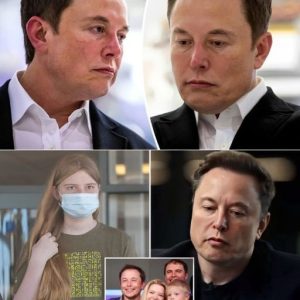Jennifer Lopez, at 54, is no stranger to media scrutiny. Having enjoyed the limelight for most of her life, the singer and actress now faces increasingly negative public opinion. But is this relentless negativity fair? Let’s delve into the situation.
Jennifer Lopez’s journey is far from her humble beginnings in the Bronx, New York. Never shy about her roots, she immortalized them in her hit song, “Jenny from the Block.” The lyrics,
“Don’t be fooled by the rocks that I got/I’m still, I’m still Jenny from the block,” reflect her pride in her origins.
In 2024, Lopez’s career has reached new heights. With a net worth of about $400 million, according to Celebrity Net Worth, she has spent over 30 years in the public eye, navigating the entertainment industry’s ups and downs. Despite her experience, the recent hyper-focus on her may be something even she is not used to.

Lopez’s performance at the 2020 Super Bowl halftime show with Shakira was one of the most popular in history. The lead-up to this performance was featured in the 2022 Netflix documentary, “Jennifer Lopez: Halftime.” The documentary also highlights her role in the 2019 movie “Hustlers,” which earned her an Oscar nomination. Achieving such success at age 50 is a significant feat in an industry rife with ageism against women.
Despite her accomplishments, public opinion has turned drastically against her in recent years. Many question whether this negativity is tied to her album, “This Is Me… Now,” released earlier this year. The music and the accompanying movie were poorly received, with the film earning a 4.2/10 rating on IMDb and scathing reviews from fans and critics.

I watched the movie and found that while it wasn’t my favorite, the negativity Lopez received was unwarranted. Many artists release subpar work, and Lopez took a chance that didn’t pan out. The harsh backlash seems excessive.
Historically, I’ve been ambivalent towards Lopez. Curious about the intense public reaction, I watched her movie and documentary to understand the criticism better. The film “This Is Me… Now” portrays Lopez poking fun at herself, addressing her three failed marriages and pattern of toxic relationships. The movie, though poorly executed, delivers a positive message about self-love.

The documentary, “The Greatest Love Story Never Told,” follows Lopez as she self-funds her musical movie project after losing studio backing. It details her belief in the project, inspired by reconnecting with Ben Affleck. The album “This Is Me… Now” includes a song titled “Dear Ben Pt. II,” mirroring her 2002 album “This Is Me… Then.”

Affleck appears extensively in the documentary, showing support for Lopez despite his discomfort with their relationship being public. His acceptance and support raise the question: if Affleck can accept this, why can’t the public?

The documentary presents Lopez candidly, showing her fears and doubts about her project’s success. Despite her vulnerability, the public’s harsh criticism remains. This reaction might stem from societal tendencies to bring women down. Successful female celebrities, like Taylor Swift and Britney Spears, often face media focus on their personal lives over their professional achievements.

While attitudes are shifting, misogyny and sexism persist in how female celebrities are treated. Public disdain for Lopez and pleasure at her recent professional and personal challenges might reflect this societal issue.

Ultimately, we struggle to see a woman succeed in all aspects of life. Lopez, a rich, successful entertainer who also finds love, may be hard for some to accept. This could explain why the public is eager to see her stumble.





